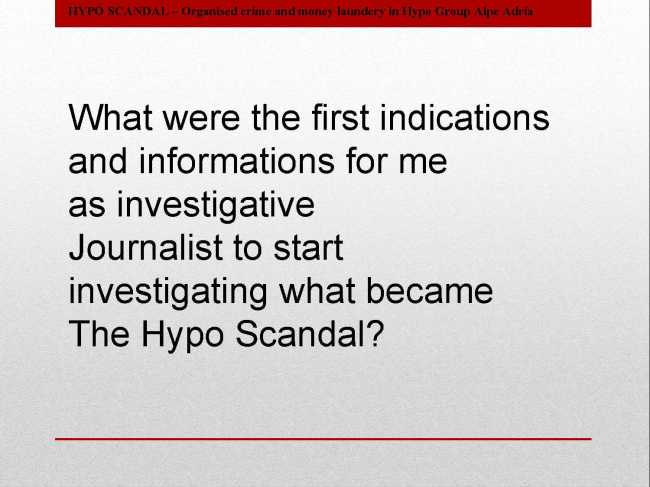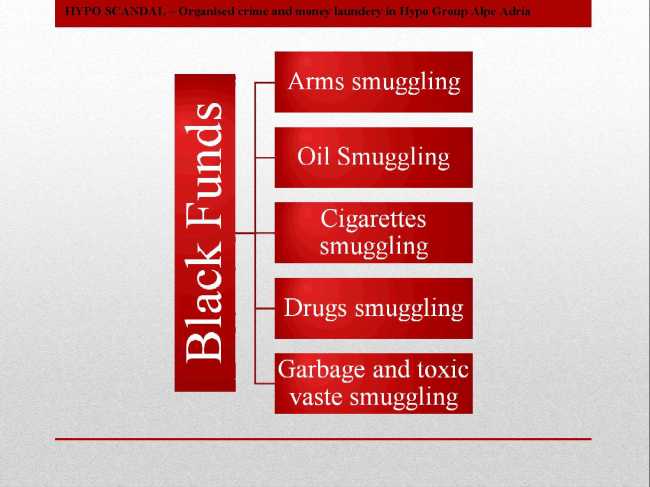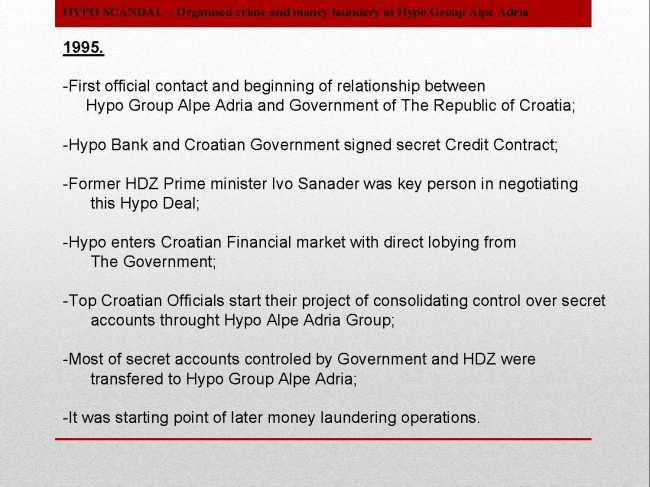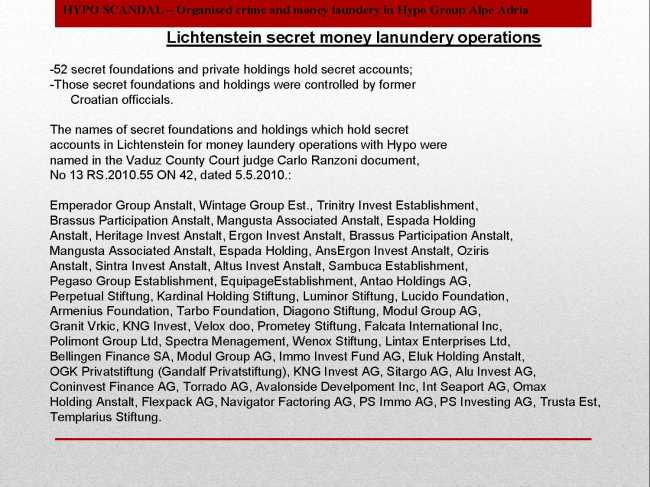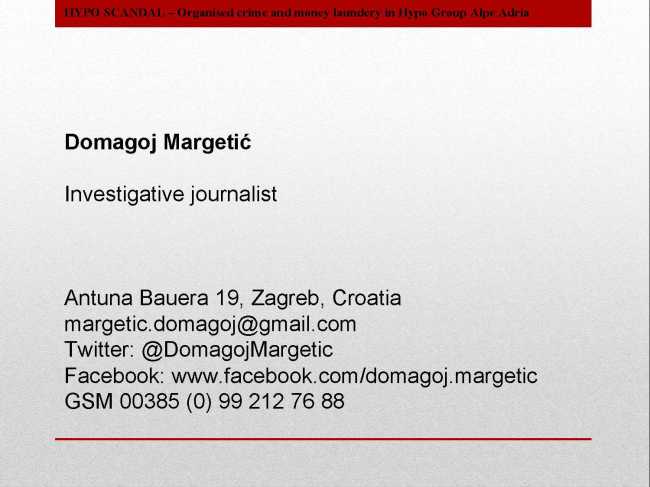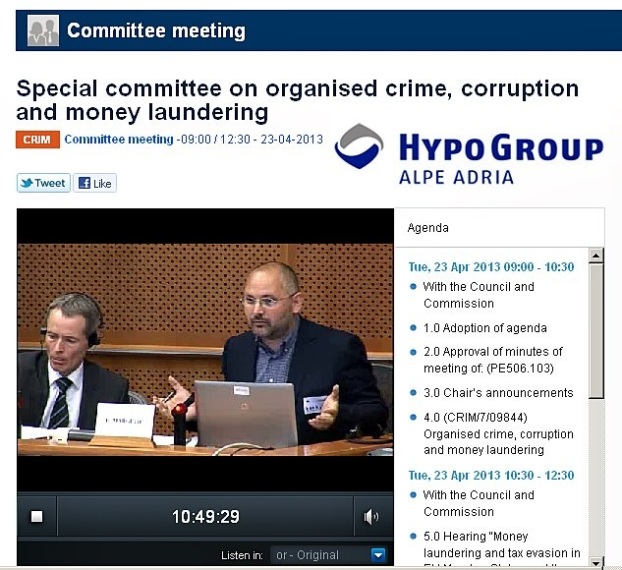
Croatia is a small, beautiful country sitting at the crossroads of Central Europe, the Balkans and the Mediterranean, with a beautiful serene Adriatic Sea coast that contains more than a thousand islands. It has a high potential for development. It also has a very high development index, where life expectancy, literacy, education are high (high levels of income are disputable). Yet, in this 20th Century, there was a bloody war that Croatia was involved in …
Less than ten years ago, in 1995, when all stakeholders of the war in the Former Yugoslavia, including Croatia what, exhausted by infighting, forgot to do – is to deal with forgiveness, despite the close living proximity to those they declared enemies. Reconciliation is imperfect, but it is necessary. And this incidentally is a rotten part of Croatian development as a state where freedom of speech is restricted, where no political figures have taken up courage to deal with truth, and where there is no division between politics and private sector development. As the matter of fact, reading the below referenced 2010 report from Amnesty International one can extrapolate that the Croatian government leadership since 1995 has been full of war profiteers.
Longer the truth is closeted, more rotten it is going to continue to be in the State of Croatia. Croatia, however, can thank independent journalism for bringing that much needed truth up on the surface. Why, every war begins because of money, but in the Balkans people have been duped to believe that it is because of ethnic hatred. So they continue to hate.
Thankfully, the profiteering and monetary flows have best been described by Hypo Affair uncovered and documented, by an investigative journalist Domagoj Margetic (Sign Change.org petition to support Domagoj. So now, they can stop hating. But they don’t.
Indirectly, what Margetic has begun is inklings of Truth Reconciliation Commission, whose members are himself and a clan of dedicated truth seekers across the Balkans. Incidentally, the ‘truth seeker’ is on Hunger Strike because he is Black Listed by the Croatian Government.
It is safe to say that on the top of Croatian pyramid known as Hypo Group Alpe Adria Affair (there is an Austrian scandal associated with this bank as well), one can find involvement of three political parties led by the Croatian Democratic Union (HDZ), Croatian Social Democratic Party (SDP), and the Istrian Democratic Assembly (IDS).
According to Margetic’s research (please watch the video with English subtitles) and documents that he has in possession about EUR 100 Million of Former Yugoslavian money, half of which belonging to Croatia, have been laundered and about 200 elite Croatian families have gotten rich as a result of this. An example is provided of Ivo Sanader.
Margetic’s investigative journalism brought down Ivo Sanader, former Croatian prime minister and the former president of the Croatian Democratic Union (HDZ). Sanader has allegedly received nearly $700,000 in bribes by Hypo Group Alpe Adria Bank for arranging a loan in 1995. He has been accused of war profiteering, and has also been accused of receiving EUR 10 million in bribes from the CEO of the Hungarian oil company MOL, Zsolt Hernádi, to secure MOL a dominant position in the Croatian oil company INA. This pyramid scandal has everyone involved.
Just ask Domagoj Margetic, and he will give you 20+ names of major politicians, 35+ names of major tycoons and other key people involved in the Hypo affair.
Why isn’t Margetic publishing a book about all of this? He has. His book, “The Banking Mafia” was written in 2008, topics include:
- Money transfers to Liechtenstein through the Hypo bank;
- Ivo Sanader disposed with illicit funds Hypo bank loans in 1995
- Money laundering at the Hypo Bank;
- Government participated in money laundering through the Hypo bank
- Croatian government shares responsibility for the criminal in Hypo Bank
- Whom did the bank grant secret loans to?
- Laundering of more than 11 billion through the Hypo Bank illegally increased external debt of the Republic of Croatia;
- Fictitious loans granted by the Hypo Bank Klagenfurt served as a cover for money laundering;
- Money laundering with the long-term foreign currency bank deposits of the Hypo Hypo Bank Klagenfurt with the Hypo Bank Zagreb;
- Through supplementary capital the Hypo bank Zagreb laundered over 200 million euros;
- Hypo bank in Croatia laundered money through related person transactions;
- Through secret foreign accounts in foreign banks, Hypo Bank Zagreb laundered around 500 million euros;
- Hypo bank through The Slavonian Bank (Slavonska Banka) increased Croatian foreign debt by more than 301 million euros;
- Criminal report for money laundering and concealment of illicit money in Slavonian Bank (Slavonska banka);
- The Croatian National Bank provided money laundering by the Hypo Bank through the Slavonian Bank (Slavonska Banka)
Below, you will read about inability of political elite to deal with the legacy of the war, including war profiteering.
Unfortunately this has been the case with a large chunk of Croatian people. Domagoj Margetic has been called a Serbian agent, a follower of Serbian World War II monarchist paramilitary army (‘cetniks’), etc.
The lack of political elite to release information, provide apologies, establish whistle blowing laws for the companies (which are sometimes government-owned, and at other times formerly government-owned) and media (support a Petition to Establish a Whistleblowing Law in Coratia) is affecting Croatian people drawing them into ‘group-think.’ Croatian elite has done very well in psychologically controlling the masses.
This is why smart, free and independent journalists, like Domagoj Margetic, find themselves on the brink of starvation. Whereby in America, he would be earning millions of dollars from his investigative journalism work, in Croatia Margetic, will be allowed to starve to death.
Now back to Amnesty International report issued in 2010 (three years ago). While some references may be outdated, facts and recommendations provided remain, and they call as does this blog post for some serious thought to Croatia needing to belong on international human rights watch.
In 2010, Amnesty International issued a report on Croatia, confirming that while they have no position on whether the Republic of Croatia should or should not be accepted as a member of the EU or any other international organizations, they did confirm that:
- The accession process into the European Union is “a good opportunity for Croatia to improve its human rights record by complying with the highest human rights standards.”
- Having said that, the organization continued to be concerned that measures that have been implemented in Croatia did not translate into tangible effects.
While the majority of the report deals with Croatia’s handling of the war crimes, Amnesty International was particularly concerned with:
- Ethnic bias in sentencing
- Failure to prosecute war crimes in accordance with international standards,
- Failure to enforce all relevant legislation providing for the protection of witnesses (in the courtroom and outside, witness support services),
- Failure to make judges, prosecutors and lawyers fully aware of international obligations in the field of human rights; and most of all
- The lack of political will in Croatia to deal with the legacy of the war.
And this is the ‘rotten’ part where the focus of this blog post will be placed.
How are politicians not dealing with past?
- There is the lack of political will to prosecute war crimes cases in Croatia and the failure of the authorities to make it their priority
- When the three Croatian Army generals (Ante Gotovina, Ivan Čermak and Mladen Markač) were awaiting their trial in The Hague, the government of Croatia, instead of distancing itself from the case, asked the International Criminal Tribunal for the former Yugoslavia (ICTY) in September 2006 to be allowed to act in the capacity of amicus curiae in the case. They were rejected. This makes everyone externally extrapolate that Croatian government is full of war profiteers.
- The failure of the authorities to provide the ICTY with all the relevant military documents related to the 1995 Operation Storm
- In his last report to the UN Security Council in November 2009, the ICTY Chief Prosecutor stated that “since the previous report to the Security Council […] no substantial progress has been made in locating a number of key military documents related to Operation Storm of 1995, which the Office of the Prosecutor had first requested in 2007.” As of April, 2010, when this Amnesty International document was written, no documents were not provided
- Amnesty International was extremely concerned about the political involvement by some of the highest officials in the country, in the case of Branimir Glavas, Member of the Croatian Parliament, preventing the course of justice, whereby Government waived his detention during prosecution. On the day of the verdict, the accused fled to Bosnia and Herzegovina, which citizenship he acquired in the meantime. Based on the agreement on mutual execution of criminal sanctions between Croatia and Bosnia, Glavas was finally arrested in Bosnia on September 28, 2010. His seven medals were taken away.
- As was the case with 2010 President of Croatia’s apology to Bosnia in the Bosnian Parliament of Bosnia, Croatian parties took that apology back in the weeks to follow
- As a result, political figures are undermining efforts to ensure reparation for all victims of the wars.
Possible solutions proposed by Amnesty International:
- Amnesty International recommends that calls on Croatia to, in line with the United Nations Basic Principles and Guidelines on the Right to a Remedy and Reparation for Victims of Gross Violations of International Human Rights Law and Serious Violations of International Humanitarian Law, undertake immediate efforts to grant the victims the right to reparation, including an official apology, for the war crimes which, beyond any doubt and as confirmed by the ICTY, have been committed by the Croatian military and political officials.
“Amnesty International urges leading officials in the country to refrain from making statements which undermine efforts to guarantee the right to remedy and reparation, as enshrined in international law, including an official apology.”
- “The organization calls on the government of Croatia to show true commitment to prosecute all war crimes irrespective of the ethnicity of those responsible for war crimes and their victims.”

